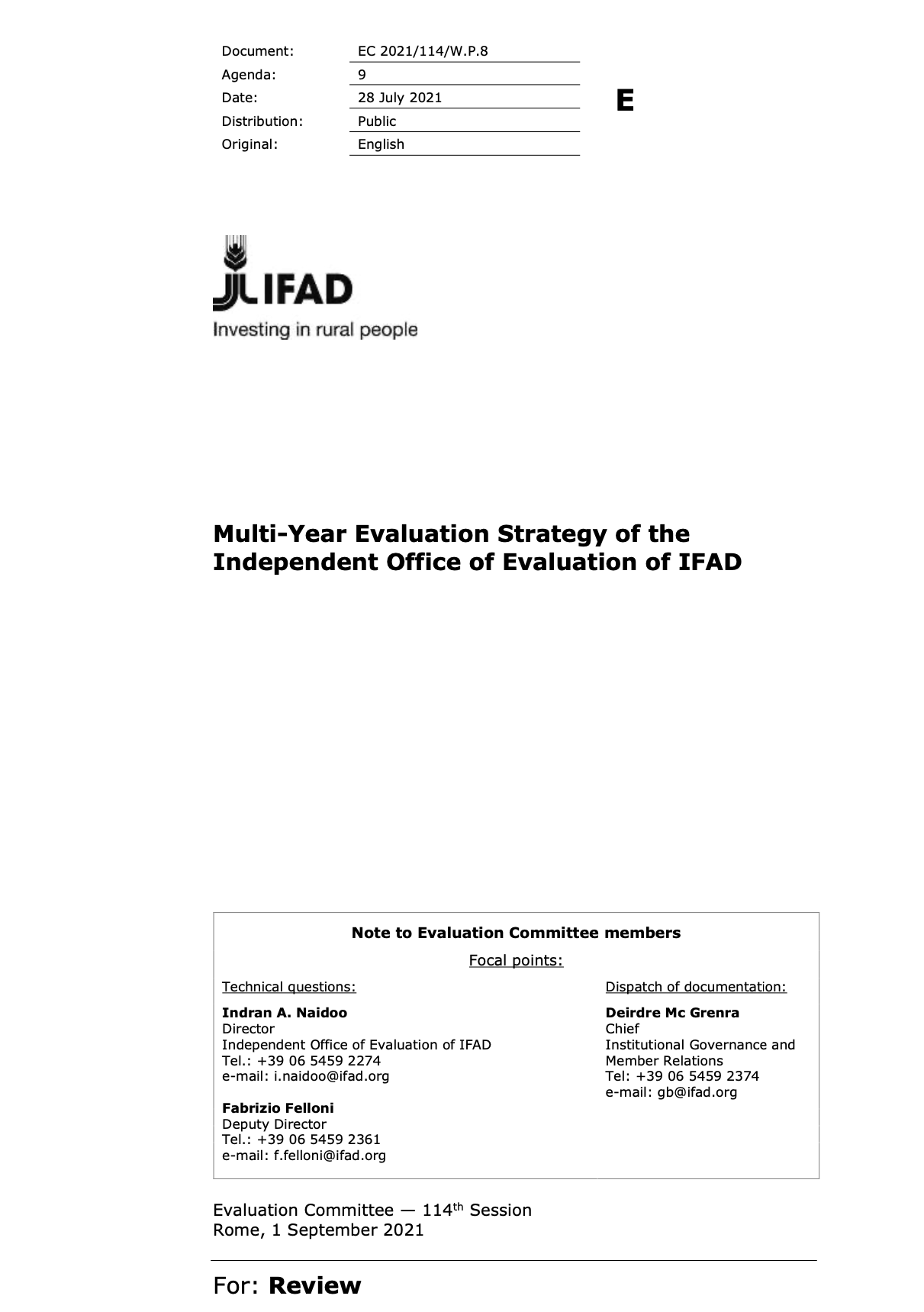Evaluation strategy - IOE

Evaluation strategy
The multi-year evaluation strategy provides the guiding framework for future IOE work programmes and a bridge between the Revised IFAD Evaluation Policy (2021 Evaluation Policy) and the annual work programmes. The strategy will span a period of six years: from 2022 to 2027 (IFAD12 and IFAD13). IOE will conduct a review at midterm, to reflect priorities that will be agreed in the context of IFAD13 as well as to learn from the experience of the first three years.
This strategy helps operationalize the principles of the 2021 Evaluation Policy and provides guidance and stability over the medium term. IOE will continue to prepare an annual work programme and budget for discussion with the Evaluation Committee and Audit Committee, and seek approval of the work programme by the Executive Board and final approval of the budget by the Governing Council. The strategy defines key performance indicators (annex IV), which will also help measure progress and provide IOE with guidance.
The overarching goal of the strategy is to support the theory of change of the 2021 Evaluation Policy. The aim is to make IOE’s role more explicit in achieving the desired impact of the policy.
More specifically, the four main objectives of the strategy are to:
- Contribute to forging IFAD’s corporate culture as a transparent, learning-oriented and accountable organization by providing IFAD’s governing bodies, Management, governments and national development partners with assessments and knowledge that are critical to fulfilling the commitments made under IFAD11, IFAD12 and IFAD13.
- Improve evaluation coverage and promote transformative evaluations that reflect the scale and scope of IFAD operations, ensuring methodological rigour, attention to inclusiveness and cultural responsiveness, flexibility and cost effectiveness.
- Engage with Management, Member States and external partners to support evaluation capacity and use within and outside IFAD.
- Retain and deepen IOE’s position as an internationally recognized leader in the evaluation of rural development programmes, policies and strategies by further strengthening the relevance of its work, promoting innovative approaches and enhancing collaboration with other organizations, and with think tanks and universities.